
Date: 2021-08-02 Visitcount: 143
From July 12th to 29th, the College of Education of Zhejiang University successfully held an international summer school on the theme of “Quality Education for A Post-Pandemic Era”. More than 50 students participated in the program. This program, led by Associate Professor ZHAI Junqing of the College, invited 15 education experts from prestigious universities all around the world such as University College London, King's College London, and University of Exeter. Experts have shared their experience and latest research findings regarding quality preschool education, educational technology in teaching, science education and health education, and quality higher education.
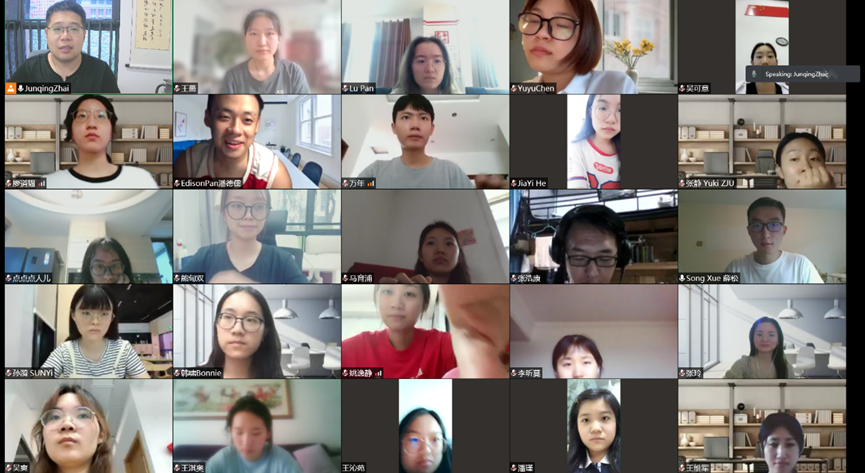
On the afternoon of July 12th, the first lecture of the program was delivered by Professor Ming Cheng from Edge Hill University in the UK. Professor Cheng gave a report concerning quality higher education. She explained the distinctions between different types of universities in the UK, and discussed the advantages and disadvantages of evaluating the quality of higher education. On the basis of five completed research projects, she critically reviewed the four most commonly used terms related to quality assessment: fitness for purpose, value for money, student satisfaction and students as customers.
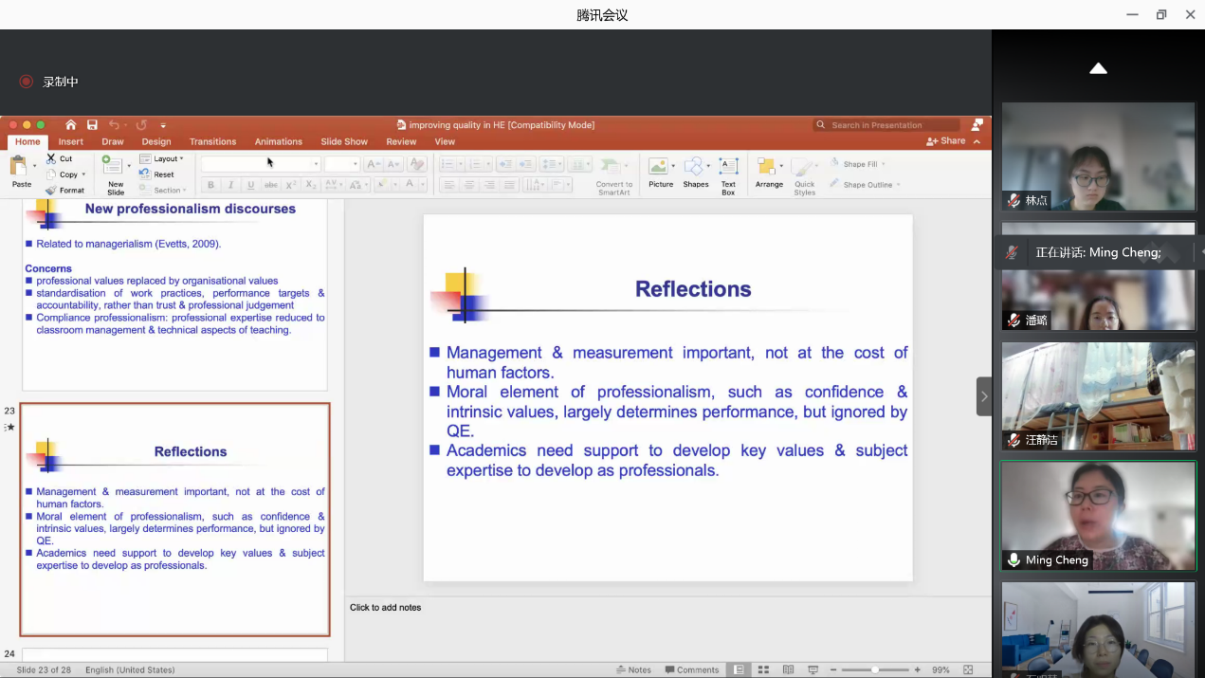
On the afternoon of July 14th, Dr. Justin Dillon, professor from Graduate School of Education, University of Exeter, reported on the pedagogy of science, environment and health in the post-pandemic era. Professor Dillon first introduced the content of science, environment and health education in schools, and proposed the need to update existing curriculum structure and content, and explained with the case studies of science education in Europe and the United States. He argued that a social justice informed approach towards the vision for science education in the post-pandemic era is of paramount importance and that failure to do so will only serve as a way of perpetuating existing inequalities. He also put forward ideas to invite community to engage in science education.
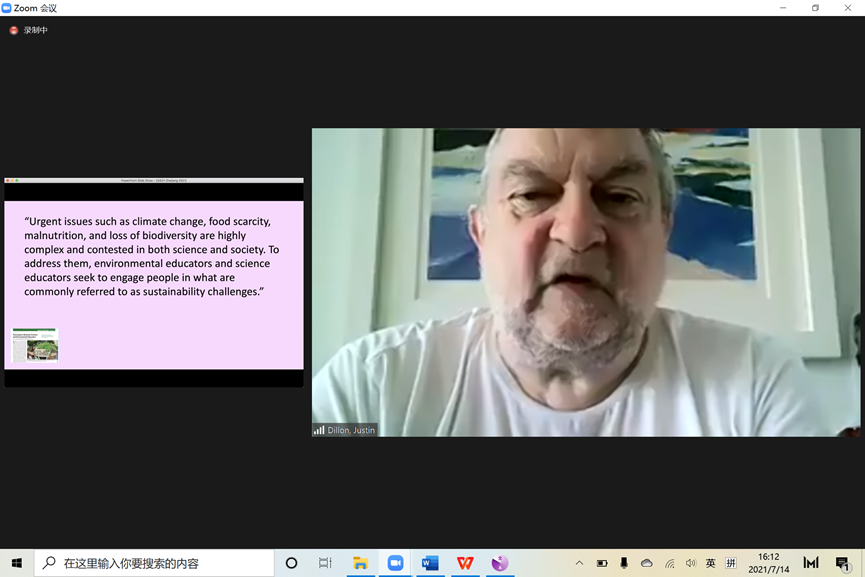
On the morning of July 15th, Helen Hanna, assistant professor from The Education University of Hong Kong, presented a report on visual methods in teaching. First, she introduced different visual methods and the reasons for using them. These methods include picture books, photography and films. Secondly, she focused on South African immigrant students, and contended that students' silence is of full significance. Researchers and teachers need to fully listen to and understand children, including their silence.
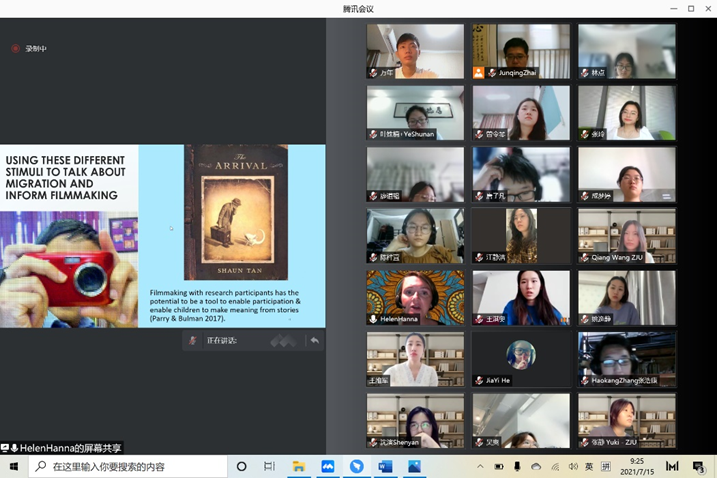
On the afternoon of July 15th, Dr. Xiao Xu, research assistant from University of Illinois Urbana-Champaign, held a workshop concerning research methods. Dr. Xu shared the basic principles of designing quantitative and qualitative research in educational research, and discussed the problems in subjects, samples, variable setting, data measurement, etc. Dr. Xu then shared the principles and procedures of research design such as experiments, questionnaires, and interviews, and gave suggestions for students who have problems regarding research methods.
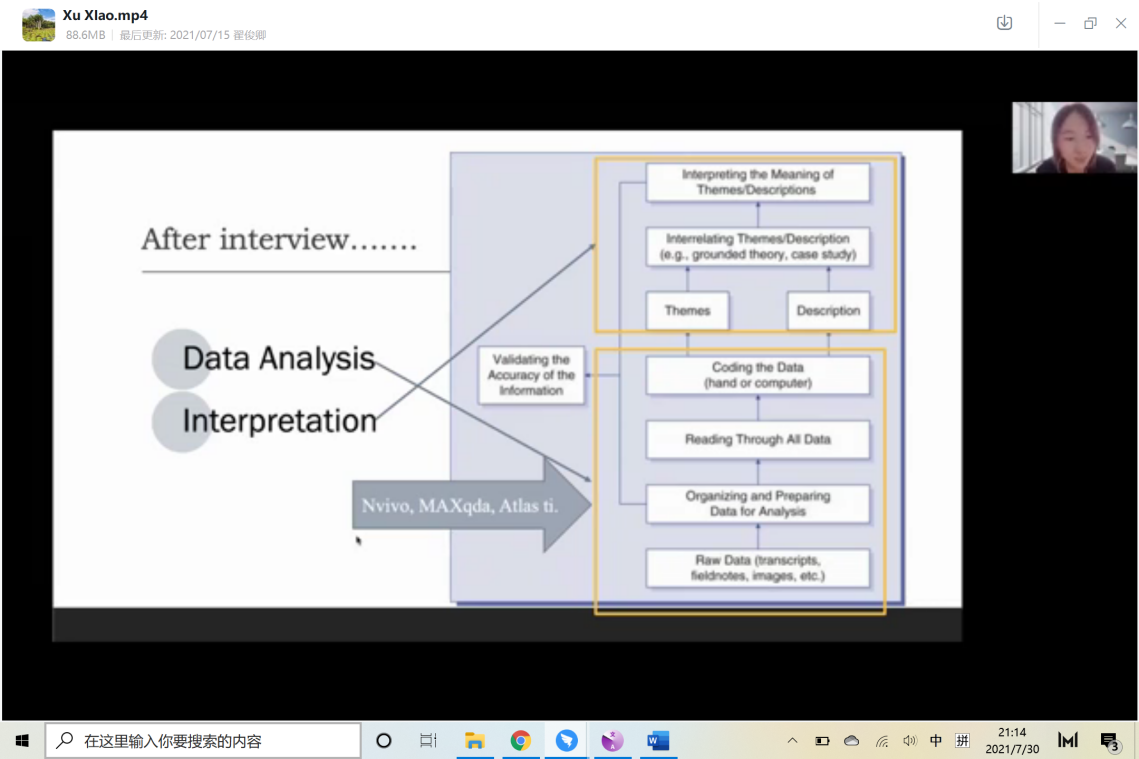
On the morning of July 16th, Daner Sun, assistant professor of The Education University of Hong Kong, gave a lecture on STEM education. She pointed out that STEM education can be regarded as a single or multi-disciplinary field. She believes that STEM education is an interdisciplinary approach to learning where rigorous academic concepts are coupled with real world lessons as students apply science, technology, engineering, and mathematics in contexts connected to school, community, global enterprises and the world. In Hong Kong, China, STEM education plays a great role in promoting the nine Generic Sills.
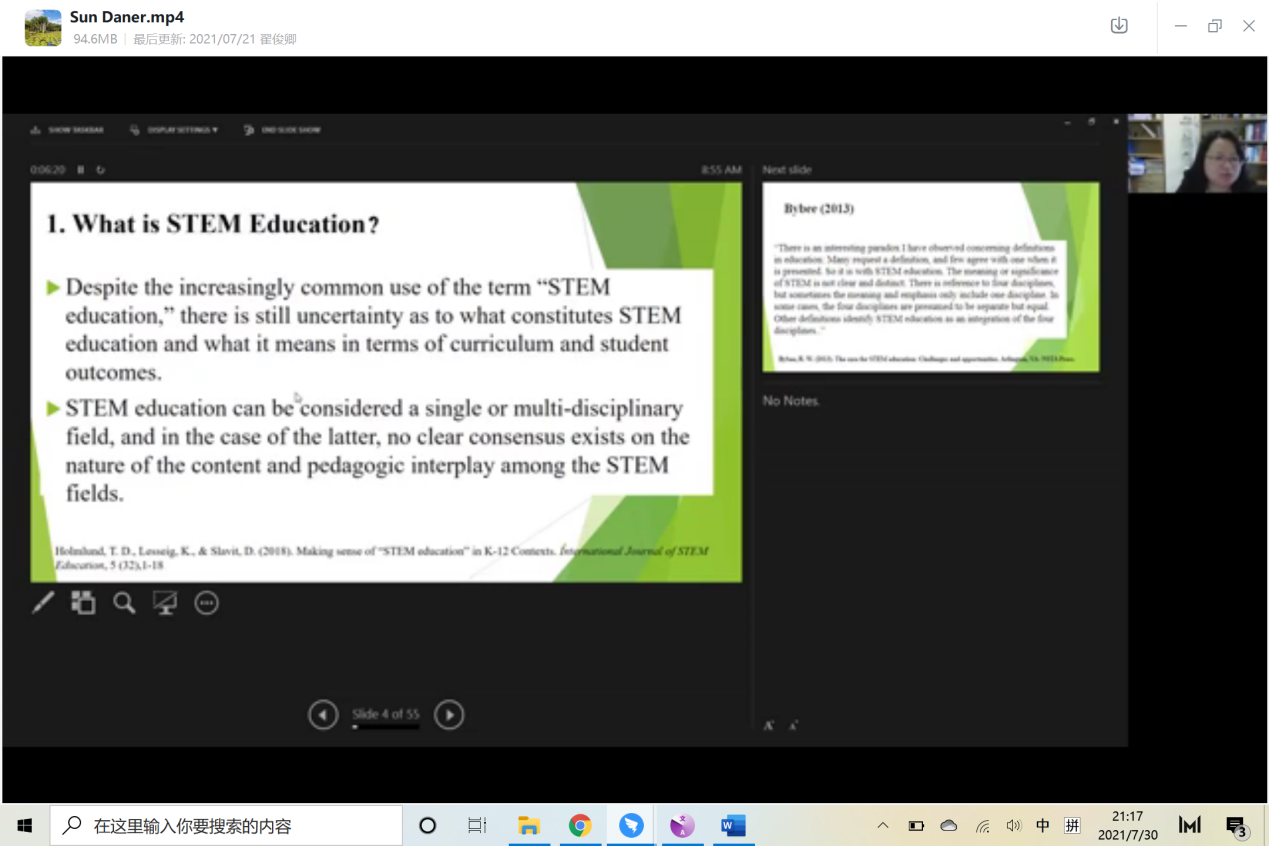
On July 16th,Assistant Professor Zhan Ying from The Education University of Hong Kong, discussed feedback in education, and emphasized how to motivate students' learning through appropriate feedback. Feedback is a circulate and interactive process. Feedback is closely related to the development of evaluation, and is an important part of formative evaluation. It has the function of improving learning, accountability, and encouraging students. Professor Zhan pointed out the need to avoid personal, norm-referenced, judgmental and negative feedback. Teachers could take two models of oral evaluation into practice, one being praise-criticism-praise, the other being ask-tell-ask.
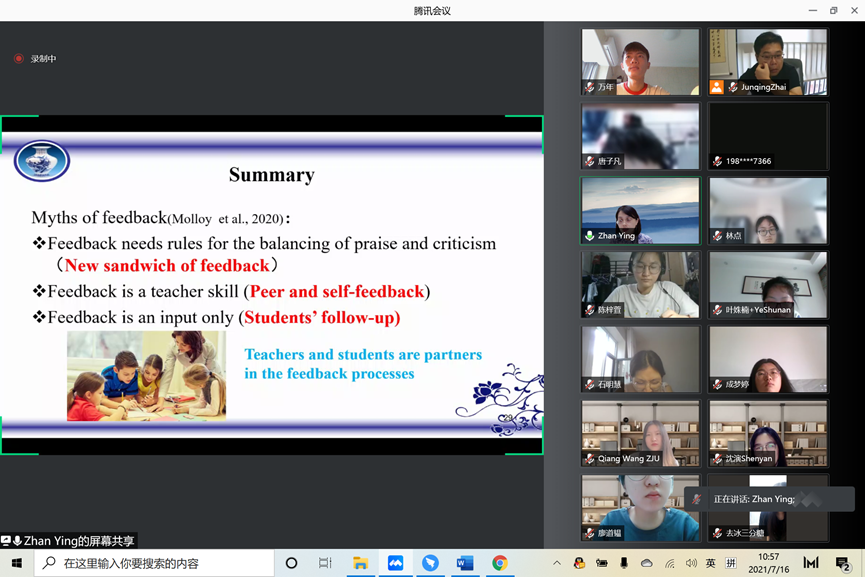
On the afternoon of July 19th, Dr. Yuwei Xu, research fellow at the University College of London, gave a lecture on gender and education. He explored how gender affects preschool education in the context of North and South countries. Dr. Xu believed that to promote cross-cultural teaching methods, it is necessary to improve the awareness of how gender discourse affects children's values and practices and the need to inform about gender sensitive practices and possible consequences. There is great need to promote mutual understanding of cultural differences and similarities among countries and to make children global citizens.
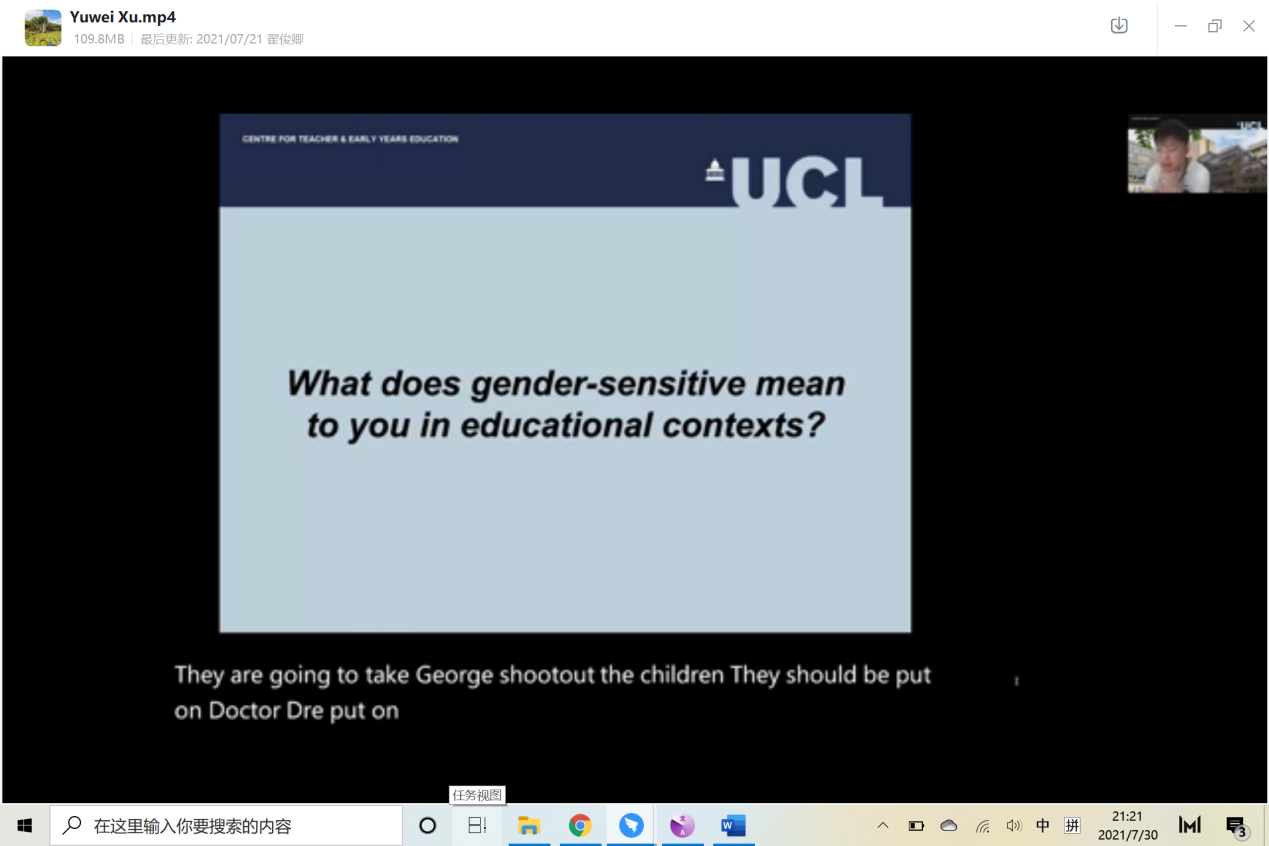
On the afternoon of July 20th, Dr. Jie Gao, an expert in the field of preschool education and research fellow from University College of London, analyzed and discussed with the students about motivating students. Dr. Gao critically discussed the advantages and limitations of theories regarding educational motivation, including need theories, behavior theories, social cognitive theory, attribution theory, expectancy-value theories, goal orientation theories and self-determination theory. She then shared her ideas on how to apply these theories to the real educational environment.
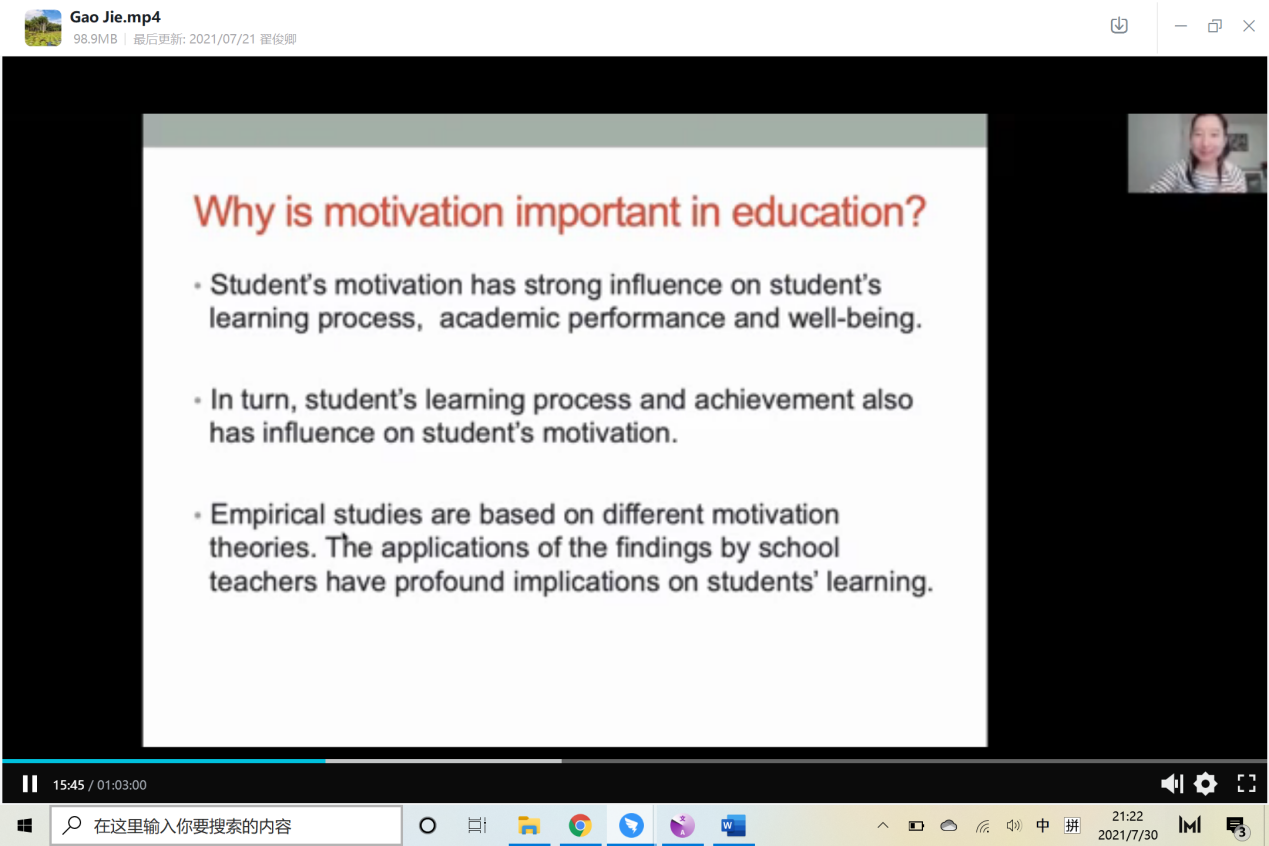
On the afternoon of July 22th, Shirin hine, research assistant at King’s College London, gave a report on forest school. Shirin first explained forest schools with six main characteristics, and explained the importance of forest schools. In the report, Shirin detailed the research on the differences of children's gender construction in traditional classroom and forest school environment. Finally, she pointed out the changes we need to make in environmental education and the opportunities and challenges brought by the COVID-19 epidemic.
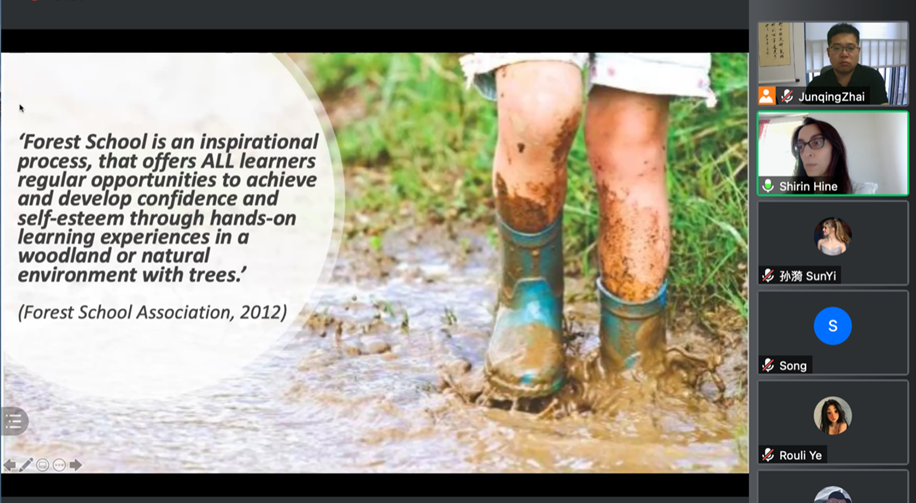
Catherine Cao from King's College London shared the results of her PhD thesis entitle Exploring Chinese Students' Science Engagement: The Perspective of Science Capital on July 22th. Although Chinese students have achieved excellent results in PISA for several years, their willingness to engage in science career in the future is not prominent. From the perspective of the theoretical framework Scientific Capital, she used mixed method for her research. Catherine concluded that there is a significant correlation between rural students' scientific capital and scientific career ideal, while the correlation between urban students is not obvious. The career ideals related to science career are often influenced by teachers. Therefore, it is necessary to strengthen the guiding role of teachers in rural areas.
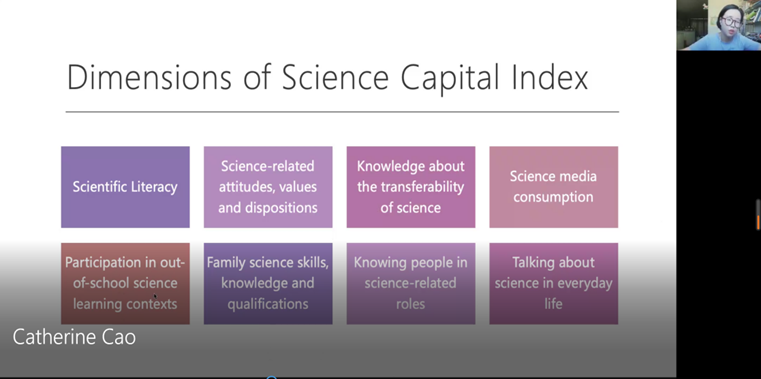
On the afternoon of July 23th, Dr. Tingting yuan, senior lecturer from Bath Spa University, UK, brought a report entitled Knowledge, Space and Ability of China's Higher Education Aid from the Perspective of CPPEE Theory. Based on the theoretical framework of CCPEE (critical cultural political economy of education), Dr. Yuan focused on educational practice and education politics, and reflected on China's role in the global political economy from the three dimensions: knowledge, space, and ability. Dr. Yuan linked studying in China to China's contribution to South-South cooperation, and pointed out that the experience of international students in China has the characteristics of equality and sustainability.
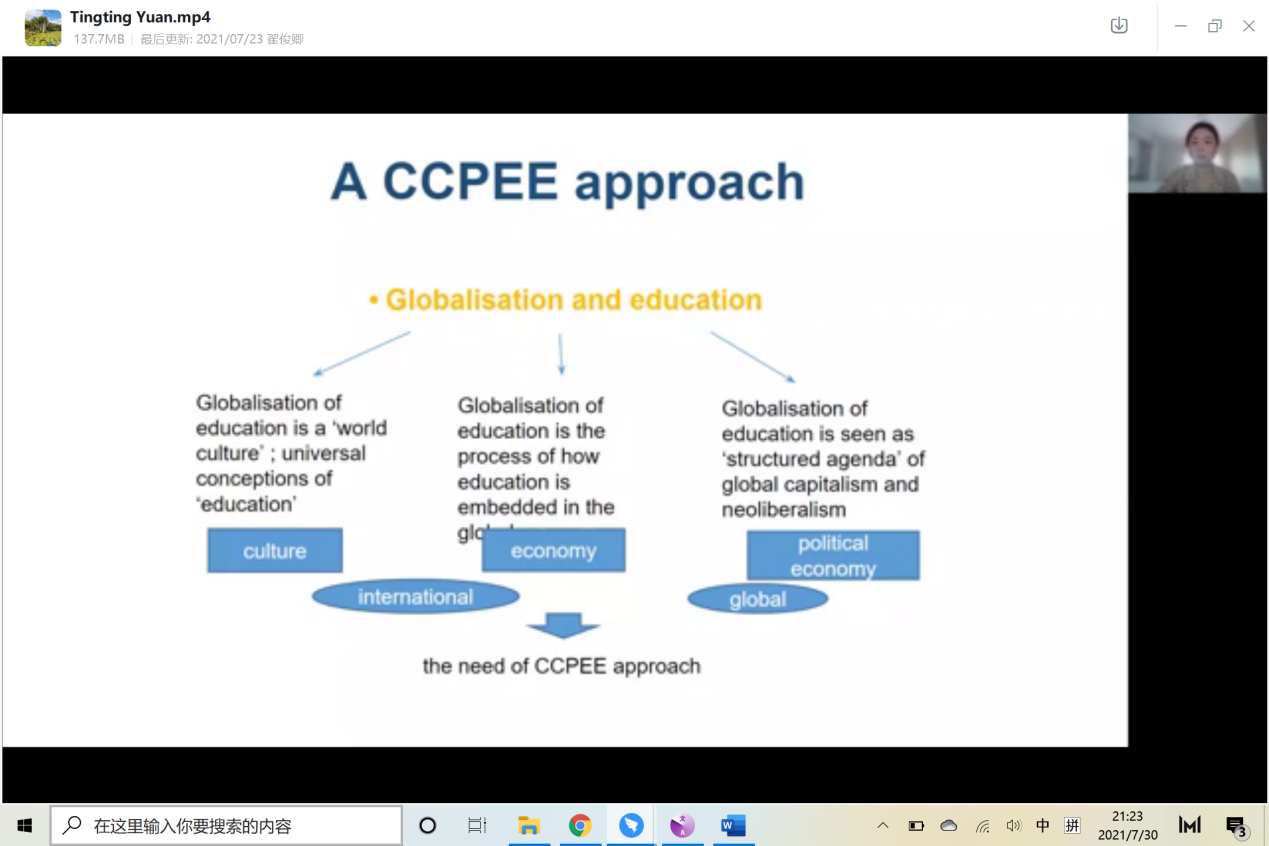
On the afternoon of July 26th, Dr. Song Xue, research assistant from University of Dundee, UK, shared his doctoral study experience and his research on science education modeling. Dr. Xue's areas of interests are scientific education and scientific modeling. He explained the basic concepts of model and modeling in a simple way, and introduced four common modeling strategies. Dr. Xue believed that the introduction of modeling strategy in STEM teaching is conducive to students' learning. Students were impressed by his interdisciplinary perspective as well as his practice-oriented research.
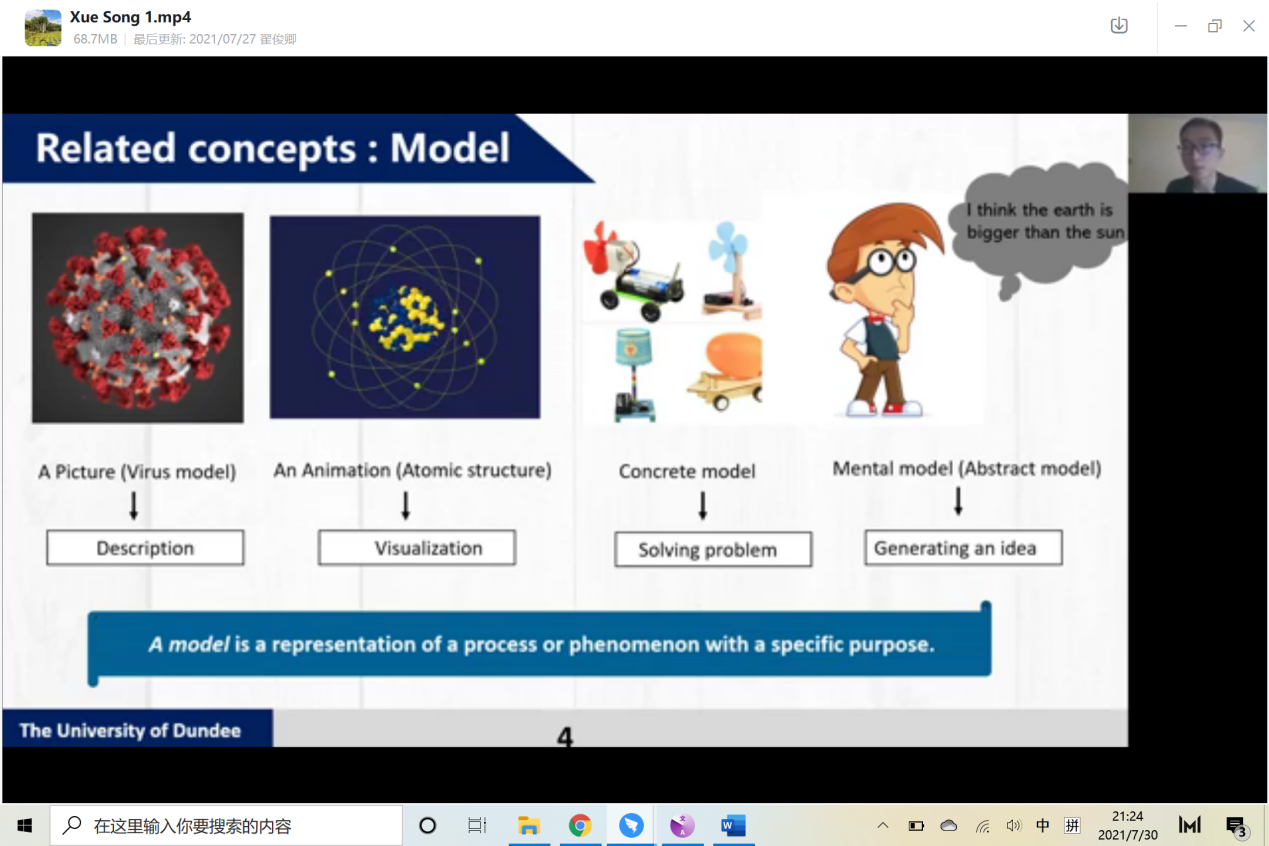
On July 29th, Associate Professor Tae hee Choi from the Education University of Hong Kong brought a lecture concerning quality education. Professor Choi asked the students what is education and what difficulties education suffers during the epidemic. Then, the professor focused on English teacher education. She believed that teachers should be prepared in the crisis to meet local needs. She introduced a widely used English teaching material in United States, Britain, and South Korea during COVID-19. At last, professor Choi and students discussed the reform of teacher education to ensure the quality and fairness of distance learning in the epidemic, and she put forward corresponding reform suggestions for the courses of pre-service and in-service teachers.
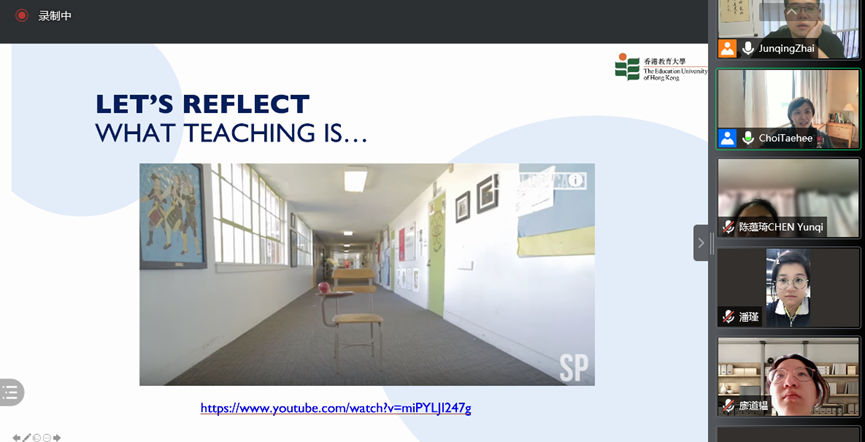
On July 29, Dr. Tiffany Chiu, research fellow from Imperial College of London and Dr. Billy Wong, associate professor from University of Reading, gave a report on ‘ideal’ student. Informed by 30 in-depth interviews with lecturers, they explored how the notion of 'ideal' student was understood in contemporary higher education. They focus on lecturers' expectations of undergraduate students, as well as their views of the 'ideal' student in different teaching and learning contexts. They identified specific personal and academic skillsets that are desirable of students, including preparation, engagement and commitment, as well as being critical, reflective and making progress. Particularly, Dr. Tiffany introduced their key findings: the potential of the “ideal” student concept also includes making progress, not already perfect. At last, Dr. Billy \ introduced their newly-published monograph.
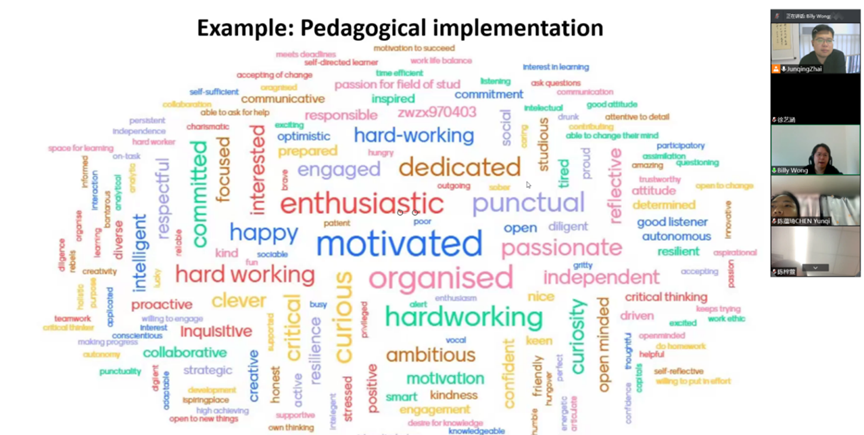
Education is not only a basic human right, but also has a direct impact on the realization of all other human rights. It is the driving force for the progress of all 17 Sustainable Development Goals and the cornerstone of building a just, equal and inclusive harmonious society. During the three-week study in this summer school, the students had a closer understanding of online education and educational research by reading latest literature, listening to theme lectures, and participating in online interaction. The research of scholars also prompted everyone to rethink what quality education is in the post-epidemic era and the approach to achieve quality education.
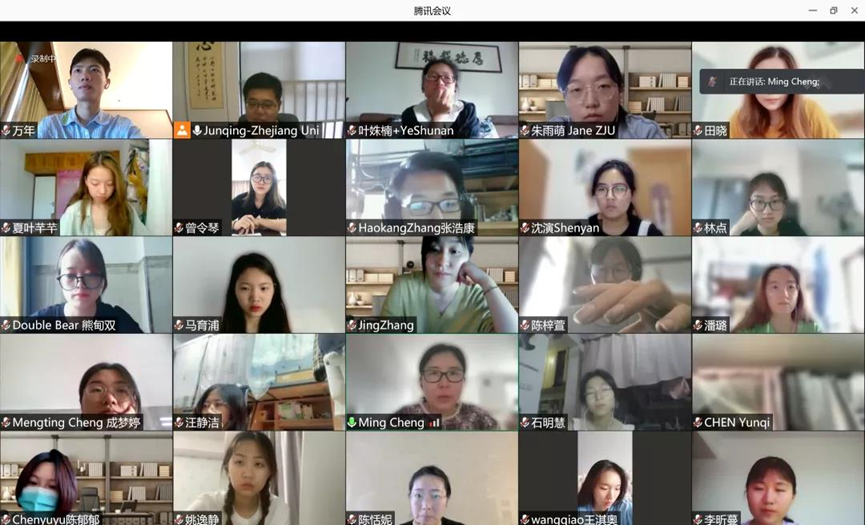
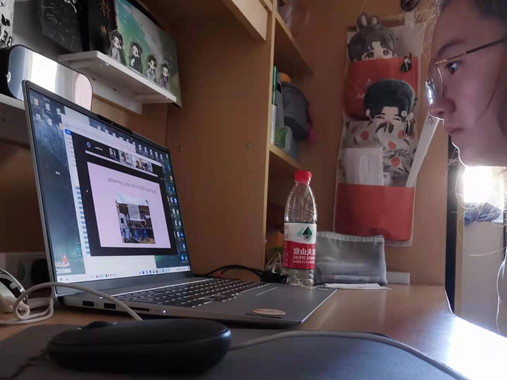
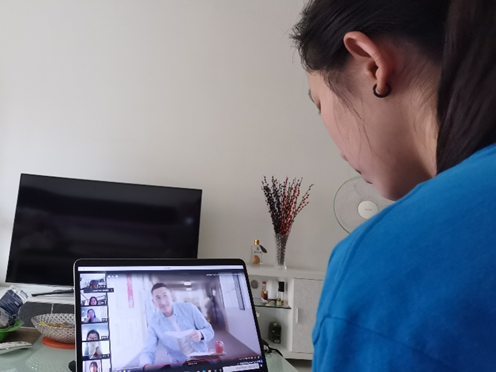
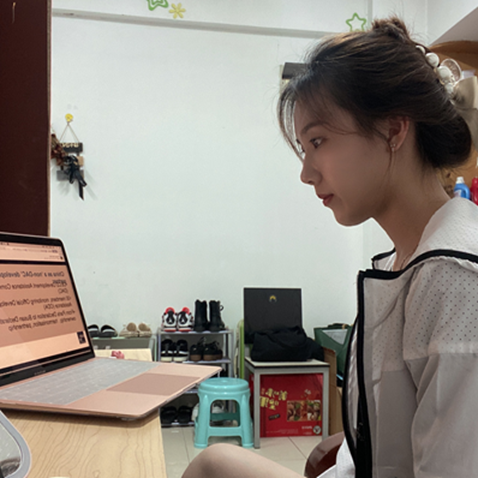
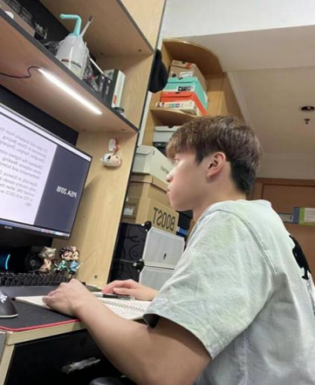
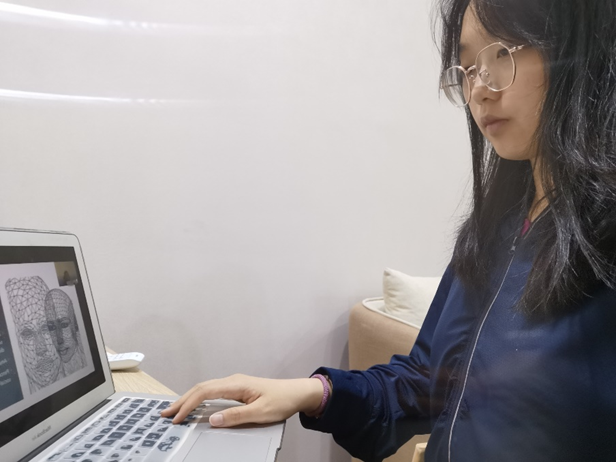
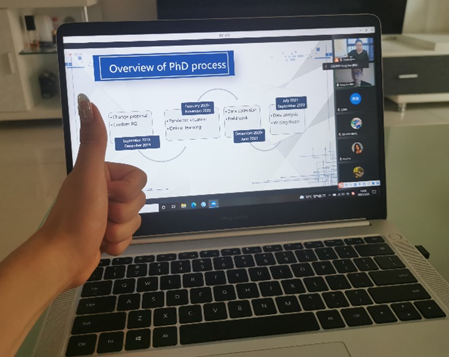
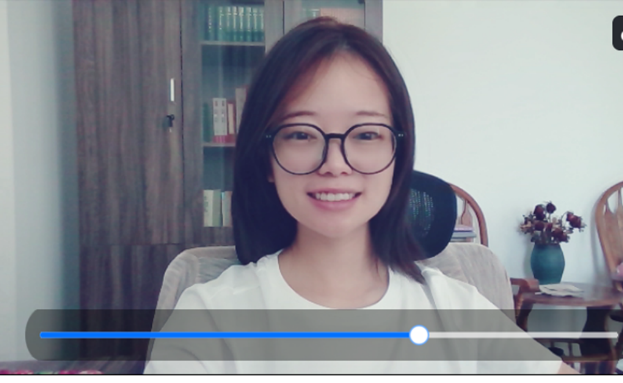
By WAN Nian & the summer school group

